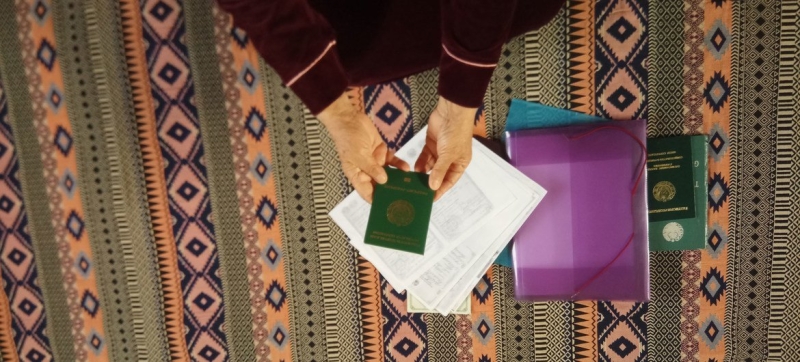
At least 4.3 million people in the world do not have citizenship of any country. Global Alliance to End Statelessness Formed in Geneva Refugees and Migrants
Representatives from more than 100 countries, civil society organizations, stateless groups, policymakers and academics have formed a new Global Alliance to End Statelessness, pledging to address the grave inequalities faced by millions of stateless people around the world.
The Global Alliance, built on the foundation of the #IBelong public campaign, was officially launched on Monday during the annual meeting of the Executive Committee of the Office of the United Nations High Commissioner for Refugees (UNHCR) in Geneva.
“Over the past decade, we have made real progress around the world through the #IBelong campaign, helping to find solutions for communities and individuals who have been marginalized for generations,” said UNHCR chief Filippo Grandi. “But the work is not over. We must ensure that every person in the world has a nationality, can enjoy their civil rights and participate as a full member of society.”
At the meeting in Geneva, the delegation of Turkmenistan announced that it had resolved the problem of statelessness within its borders. In recent years, more than 32,000 people, including refugees and stateless people, have received Turkmenistan passports. Turkmen officials attributed this achievement to a combination of strong political will, legislative efforts, international cooperation and modernization of citizen identification and registration systems.
Further commitments are expected to be made at UNHCR’s Executive Committee meetings in the coming days, and the Global Alliance will become fully operational this month. It will be chaired by a 15-member Advisory Committee, comprising representatives from governments, UN agencies, civil society and international organisations. UNHCR will support the work of the Global Alliance.
The Statelessness Problem
There are currently around 490,000 stateless people living in Europe. In the European region, UNHCR provides legal advice and assistance to affected persons, engages governments in developing procedures for identifying stateless persons, offers advice on legislative proposals, and provides legal and technical guidance on the interpretation of the UN Statelessness Conventions.
UNHCR has also co-facilitated regional initiatives to bring together high-level stakeholders in South-Eastern Europe to address issues related to overcoming technical barriers to obtaining citizenship.
UNHCR continues to support national authorities in issuing civil documentation, while also conducting advocacy, raising awareness and building the capacity of local professionals.
